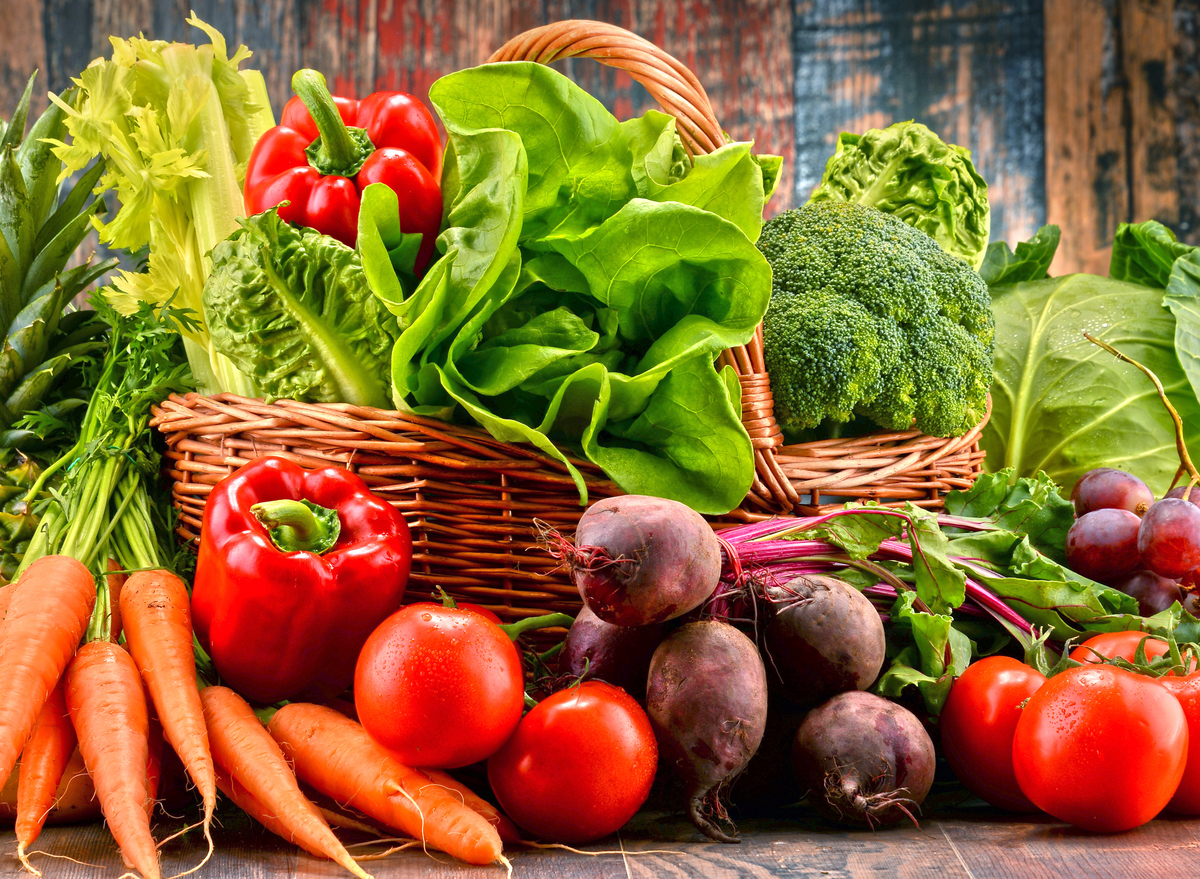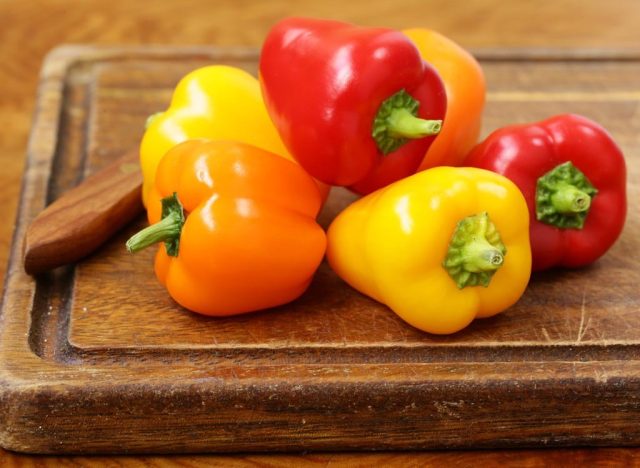The #1 Best Vegetable for Weight Loss, Says Dietitian

So you’ve incorporated the best snack combinations for weight loss into your diet. You’ve amped up your daily routine with a few of these easy ways to lose weight faster. You’ve given up these habits to avoid belly fat. Now what?
Load up on bell peppers, dear readers. Lots and lots of bell peppers. Kim Yawitz, RD, a registered dietitian based in St. Louis, Missouri, weighs in on why this nutrient-dense veggie is the best vegetable for weight loss. Read on, and for more on how to eat healthy, don’t miss Eating Habits to Lose Abdominal Fat As You Age, Say Dietitians.
Why bell peppers are the best vegetable for weight loss

They’re low in calories
“Bell peppers are versatile, delicious, filling, and low in calories, making them a great choice for weight loss,” she says, noting that one cup of chopped bell peppers has only 39 calories, which barely puts a dent in your daily quota.
They’re a good source of fiber
“Calories aside, bell peppers also have three grams of fiber per cup and are naturally high in water,” she says. “And one large review of studies linked a higher intake of low-calorie, high-fiber, water-rich foods to increased weight loss.”
They’re an excellent source of vitamin C
Another perk of bell peppers on the weight loss front is their vitamin C content. “One cup of red bell pepper also provides 190 milligrams of vitamin C, which is more than double the recommended daily allowance for adults,” says Yawitz. “In one small study, adults with adequate vitamin C intake burned 25% more fat during exercise than adults who didn’t get enough vitamin C.”
How to eat more bell peppers for weight loss
If you’re looking to add more bell peppers into your diet, the possibilities are virtually endless come meal or snack time. Yawitz loves dicing them up with some onions and throwing them in an egg scramble for breakfast, snacking on mini bell peppers with hummus between meals, and adding roasted red bell peppers to a salad at lunch.
“One of my favorite ways to eat them at dinner is to stuff them with a mixture of seasoned lean ground beef, onion, garlic, tomatoes, and a bit of cheese, and then bake them until they’re soft,” she adds.
Does color matter?
And before we leave you to get slicing and dicing, a bit of bell pepper trivia: “Yellow, orange, and red peppers come from the same plant as green bell peppers—they’re just a bit riper,” explains Yawitz, highlighting that all bell peppers are similar in calories and macronutrients, so you can really choose the variety you like most.
“That being said, the pigments that give bell peppers their color are associated with different health benefits. For example, orange bell peppers are a good source of the antioxidant lutein (which is thought to reduce inflammation), while red bell peppers are a great source of beta-carotene (which promotes eye health),” she elaborates. “Mixing it up can help you to get a good variety of nutrients.”
On that note, time to guac ‘n’ roll with a bit of guacamole served with a colorful array of bell pepper strips for dipping.